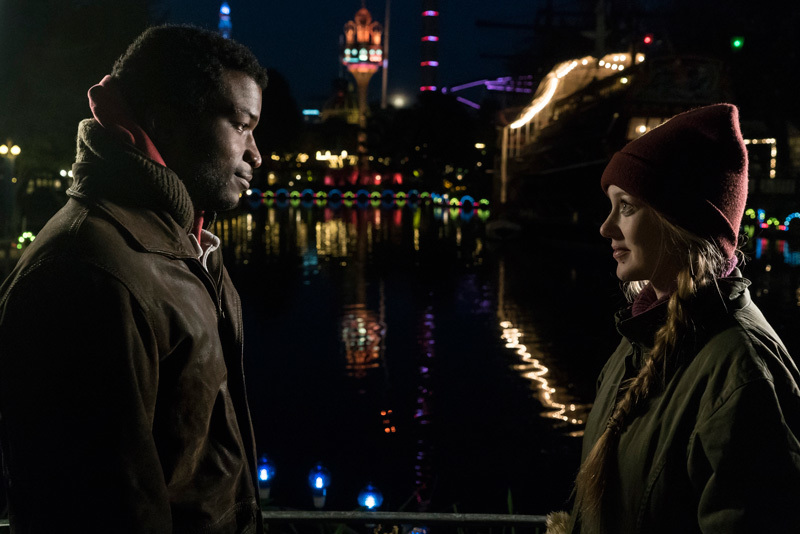Life in Europe consists of various realities: from living as a refugee to falling in love with one, each day is knitted together by an oscillating range of experiences. This notion is central to Windows on Europe, a two-part screening of short films exploring life on the continent. A part of Sydney’s acclaimed festival Flickerfest, it holds a particular focus on the lives of refugees trying to find safety and security abroad. The films cross through rural India, Bosnia, Kurdistan and beyond, venturing to reintroduce us to familiar issues through personal perspectives. Many of their subjects are recognisable from news coverage, but they’re not all tales of struggle; they’re textured comedies, romances, animations and dramas.
We caught up with Flickerfest’s director Bronwyn Kidd to chat about Europe, borderless regions and the power of keeping things short.
How did the Window on Europe short film program come about?
We wanted to engage people and have them reflect on issues and events in another part of the world. The program came together for the first time last year for our 25th anniversary festival in co-operation with the European Union delegation to Australia. With this program, Flickerfest and the EU delegation to Australia want to showcase the diversity and cinematic excellence that comes out of the European Union.
Why Europe though?
There are a lot of strong short films coming out of the European Union. They’re are a reflection of the range of cultures residing there, and therefore often offer an interesting array of different subjects and perspectives.
What makes short films from Europe particularly intriguing?
Diversity. Having so many countries and cultures together in such a relatively small space and each being in contact with each other, blending and clashing, gives filmmakers from Europe the ability to regard the world from multiple perspectives, making borders disappear, portraying their ideas in a multicultural mix.
I’d like to ask you about a couple of films that really stood out to me. Baraka focuses on the time leading up to the Iraq war, why is that part of a look at the EU?
It tells the story of two brothers being forced to separate and meeting each other again after the Iraq War is in full swing. It focuses on the impact of war on people, on families, which is still a current issue for people in the EU because of the soldiers that came back from Iraq, a lot of them are suffering from PTSD and it still has an impact on the lives of families everywhere.
The refugee crisis is a looming theme across a lot of the films. Silent Nights from Denmark was interesting as it’s a romance: it follows a woman who falls in love with an illegal immigrant. Why was it important to include this?
We received a lot of film submissions about the crisis, so it’s clear how important this topic is to people in the EU and to the rest of the world. In Silent Nights, we view the refugee issues through the eyes of love, how the conflict brings people together, but also breaks them apart.
It’s interesting to see so many nuanced looks at this experience that’s often only seen through news footage.
Import from the Netherlands broaches that subject in a lighter way, showing us how a refugee family is settling into their new life and how the adjustment to a new culture sometimes leads to a humoristic clash of culture. While Il Silenzio (The Silence), a co-production from Italy and France, views the effect of the crisis on refugee children, through the eyes of a girl who needs to translate things way beyond her years to her mother. It’s important for us to create awareness and make sure people think about ways to best protect these already traumatised children from further harm.
Do you think short films are overlooked in any way compared to features?
They are definitely less in the public eye than feature films, but this is mainly due to lack of access. Cinemas screening feature films can be found almost everywhere, while there are hardly any platforms for short films. One of the goals of Flickerfest is to provide this access to people in regional communities across Australia. Our National Tour starts right after the main festival at Bondi Beach in January and then we take our program to over 50 venues across Australia, promoting cultural awareness and cinema appreciation.
The unique quality of a short film is that it has a limited amount of time to tell its story, which means it has to tell a story quickly and strongly to get the point across. Production wise short films can also be made in less time and more cheaply than feature films. This provides filmmakers with the opportunity to bring important issues, like the refugee crisis, up for discussion in a relatively small amount of time.
The festival starts a national tour this week, bringing its program to 50 venues across Australia, more info head to their website.
Credits
Text Nadja Sayej
Images courtesy of Flickerfest
